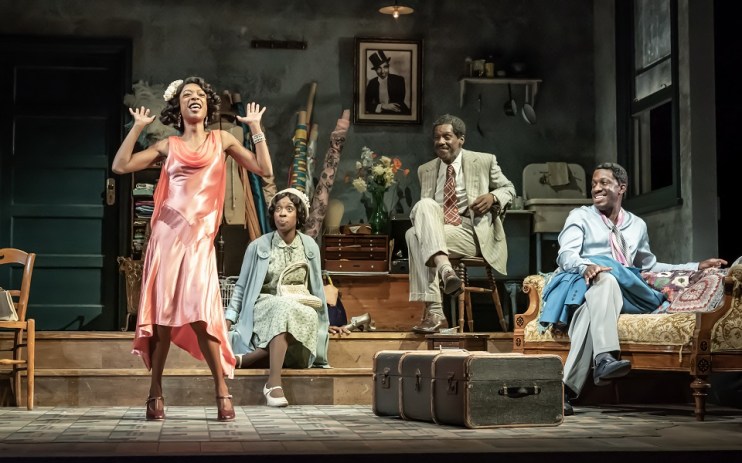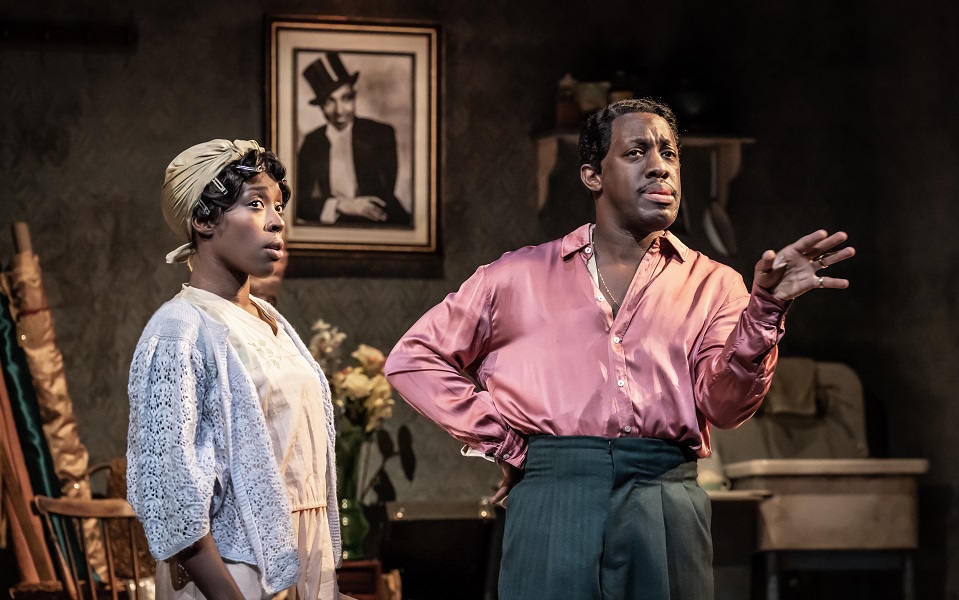Blues for an Alabama Sky review: A comic picture of The Great Depression, but not a cohesive one

Who knew a play about The Great Depression could, and frankly, should, be this funny? We laugh or we cry, goes the old adage, and Pearl Cleage’s 1995 play is an uneven but often joyfully comic celebration of some of the vulnerable, brash and foolhardy characters who lived through it.
We meet Angel who dreams of moving abroad with her friend Guy, an out gay man who’s applying for work with a top designer in Paris. Across the hallway are Sam and Delia, who plan on opening an family planning clinic for young women. All are progressives pushing for change in an era where survival is the mode. Their lives, particularly Angel’s, are upturned when a socially conservative visitor from Alabama comes to town.

There are shades of Friends as the quintet rush back and forth across to each other’s apartments, with Frankie Bradshaw’s lush, expansive set slicing the apartments to provide a cross section of both. The cast brilliantly gel, and, unexpectedly, there is a laugh almost every other minute. Giles Terera in particular finds warmth in every exchange as Guy, even when half of the conversations are hostile. He throws camp one-liners to his friends, constantly and playfully insulting their dress in spite of homophobic abuse and financial struggles that may cost him his career. Samira Wiley (Poussey Washington from Netflix’s Orange Is The New Black) has star quality as Angel, sauntering around the Lyletton’s stage as if it were her fourth or fifth London stage appearance rather than her debut.
It’s quite something to laugh quite so much throughout a play about how the Depression is ruining people’s lives, an outcome that’s also testament to Cleage’s writing and Lynette Linton’s spritzy direction. In their bursts of hilarity, we see more clearly where the shadows of the Depression lie, because to see people laughing during this fitful era is to bring it up to date with our own atrocities: the pandemic may have floored us mentally, but at some point, we laughed in one way or another.
It’s a shame that Cleage’s play somewhat falls off a cliff at the end of the second act, when the specifics around the dramatic happenings at the curtain feel unexplained and confused. The finale dampens the impact of what is otherwise a pretty straightforward but impactful show that is strongest when it simply reports on the lives of those during the Great Depression.
Blues for an Alabama Sky plays at the National Theatre until 5 November
